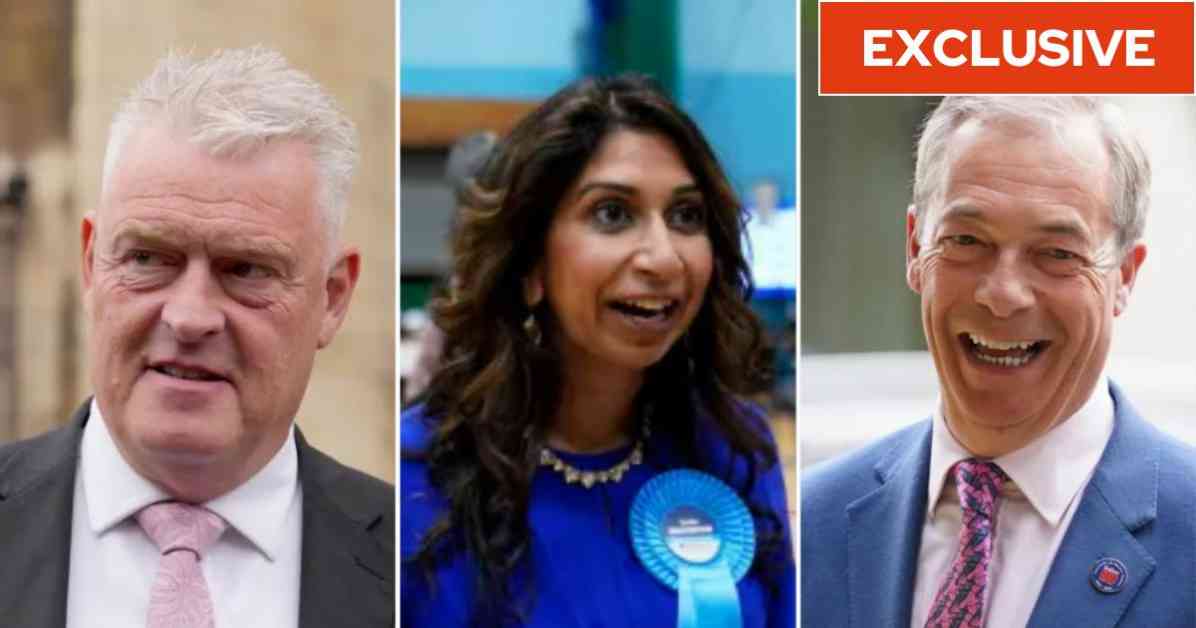Top MPs Facing Potential Loss of Income Amid Ban on Media and Speech Engagements
Several Members of Parliament, including Nigel Farage, Lee Anderson, and Suella Braverman, are at risk of losing significant income if paid media appearances, journalism, and speeches are banned. A recent analysis of the Register of Members’ Financial Interests revealed that twenty-nine MPs collectively earned £570,000 from such side hustles in the past year. As the Government scrutinizes these external engagements, the newly formed Modernisation Committee, chaired by Lucy Powell, is investigating whether these activities benefit the public or pose conflicts of interest.
MPs Facing Scrutiny for Second Jobs in Media and Speech Engagements
The debate over MPs’ involvement in paid media work and speeches has intensified, with critics questioning the potential distractions from constituents’ needs. Transparency International UK, an anti-corruption organization, has called for stricter rules to ensure that public duties remain MPs’ top priority. Labour led the pack with fifteen MPs engaging in media and speeches work, followed by eleven Conservatives, two Reform party members, and one Liberal Democrat.
Nick Timothy, a Conservative MP, tops the list with annual earnings of £145,000 as a columnist for The Telegraph. Despite spending three hours a week on his articles, Timothy’s significant income raises concerns about potential conflicts of interest. Similarly, Nigel Farage, the leader of Reform UK, continues to host a show on GB News while earning £81,607 for his contributions. His total earnings from media work and speeches over the past year amount to £110,391, sparking debates about the balance between parliamentary responsibilities and external engagements.
MPs Defend Their Supplementary Income Sources
Amidst growing scrutiny, MPs like Stella Creasy, Claire Coutinho, and Catherine McKinnell have defended their involvement in paid media work and speeches. Creasy emphasizes using article fees to support her constituency staff, while Coutinho donates her earnings to a local charity focusing on elderly support. McKinnell’s donation to a children’s charity reflects her commitment to ethical engagement in external activities. Despite criticisms from anti-corruption groups, some MPs argue that their additional income sources serve community interests and supplement parliamentary duties effectively.
Barry Gardiner, the MP for Brent West, received £2,000 from the BBC for TV appearances, illustrating the diverse range of media engagements MPs undertake. Margot Mollat of Transparency International UK highlights the need for clear rules to prevent conflicts of interest and ensure that MPs prioritize their public responsibilities. As the Modernisation Committee reviews potential restrictions on second jobs, the debate over the appropriateness of MPs’ involvement in media work and speeches continues to evolve.
Impact of Potential Ban on Media and Speech Engagements on MPs’ Income
The proposed ban on paid media appearances, journalism, and speeches could have significant financial implications for MPs like Lee Anderson, Suella Braverman, and others who rely on these activities for supplementary income. Anderson, a Reform UK MP, earns £100,000 annually for hosting a show on GB News, while Braverman received £82,225.40 from various media engagements and speeches. As the debate over second jobs intensifies, MPs are facing uncertainty about the future of their external income sources and the potential impact on their financial stability.
Foreign Secretary David Lammy, the highest-earning Labour MP from media work and speeches, earned £59,610 over the past year. His contributions to LBC and various events highlight the diverse range of media engagements MPs undertake. Jess Phillips and Barry Gardiner, backbench Labour MPs, also benefited from side gigs, emphasizing the complex relationship between parliamentary duties and external income sources.
In response to criticisms, MPs like Stella Creasy and Claire Coutinho have defended their involvement in paid media work, citing community support and charitable donations as ways to offset potential conflicts of interest. As the Modernisation Committee examines the need for stricter regulations on MPs’ second jobs, the debate over the appropriateness of external income sources continues to shape the public perception of parliamentary responsibilities.
Overall, the potential ban on media and speech engagements could have far-reaching implications for MPs’ income sources and their ability to balance external activities with their parliamentary duties. The ongoing scrutiny of second jobs and external engagements highlights the need for clearer rules and ethical guidelines to ensure transparency and accountability in MPs’ financial activities. As the Modernisation Committee deliberates on potential restrictions, MPs are facing increased pressure to justify their involvement in paid media appearances, journalism, and speeches while upholding their commitment to public service.













